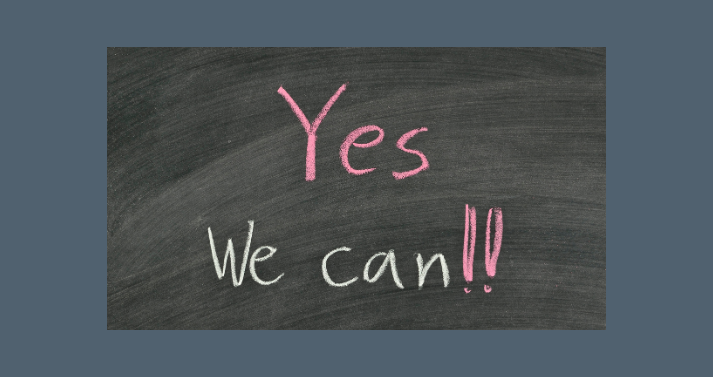“Can I use Motivational Interviewing for that?”
A question often asked by new learners!
Just what CAN you apply MI skills to?
I heard from another MINT trainer she livens up a Zoom training by chanting “YES WE CAN!” in response to these questions.
Can I use MI to talk with a teenager about drug use?
YES WE CAN!
Can I use MI to explore needed health changes for a patient managing a chronic illness?
YES WE CAN!
Can I use MI in conjunction with other therapies like CBT?
YES YOU CAN!
Can a PT utilize MI in conversations about exercises and activities?
YES THEY CAN!
You see, MI was developed to help clients resolve their ambivalence about something.
What is that something?
To get treatment or not? To best manage an illness or disability? To have better oral hygiene? To comply with laws or mandates? There are SO MANY APPLICATIONS of MI. Child welfare. Law enforcement. Probation. Case management. Coaching. Classroom. Healthcare. Dentistry. With myself?
YES WE CAN!
Even recently, MI is being applied to conversations around climate change, in navigating anti-racism, and in dismantling white supremacy. I recently attended a training on using MI tools for ‘calling-in’ conversations around racism. GOOD STUFF.
But I can’t keep the chant going all of the time.
There ARE situations when we don’t use MI.
MI is a goal oriented style of communication, and when it’s not clear what the goal is, we don’t use MI. When it is unclear what is in the best interest of the client, we can remain in MI spirit and use OARS skills, but we let go of the directionality of conversation. Instead, our task is to explore both sides of the ambivalence equally with clients.
There’s a term for it- equipoise! Equal attention to both sides. MINT trainer Chris Miles explains more in her blog post on Equipoise here!
Motivational Interviewing Tip of the Week: Just what are the targets for change where my clients express ambivalence that would be good for them to change? What could they be doing more of? Or Less of? What are they in the contemplative stage of change with? To utilize Motivational Interviewing, we need to identify what the focus is of the change conversation.
To change or not to change, THAT is the question!


